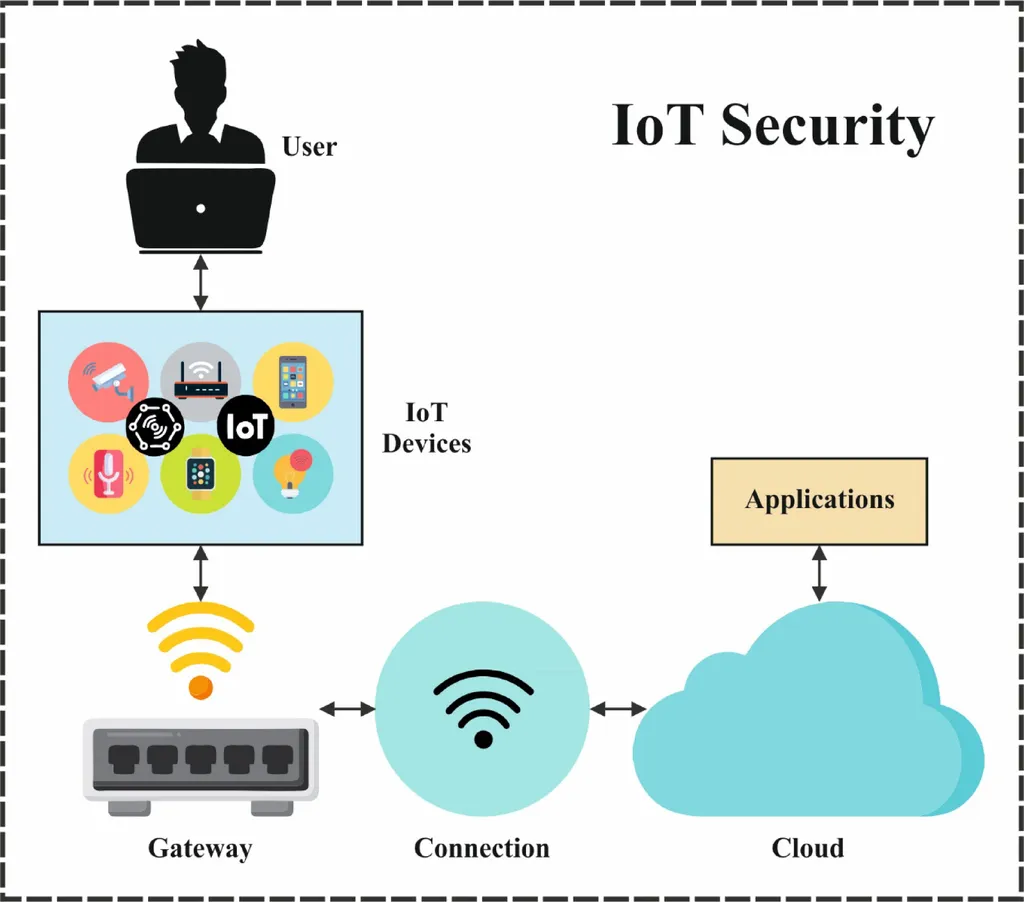In the rapidly expanding world of Internet of Things (IoT) swarms, where billions of interconnected devices drive industrial automation, smart homes, and agriculture, security remains a critical challenge. A groundbreaking study published in the journal *Artificial Intelligence* (AI) introduces a novel framework that could revolutionize how we secure these vast networks. Led by Abdelkabir Rouagubi from the Engineering Sciences Laboratory at Ibn Tofail University in Morocco, the research proposes a Remote Attestation (RA) framework that leverages Relational Graph Neural Networks (RGNNs) and Static Random Access Memory (SRAM) data to detect firmware anomalies in real time.
IoT swarms, with their interconnected nodes, are particularly vulnerable to firmware anomalies that can propagate rapidly, posing significant security risks. Traditional methods often fall short in detecting these anomalies efficiently. Rouagubi’s framework, however, offers a sophisticated solution by modeling the graph-like structure of IoT swarms and capturing complex inter-node dependencies. “Unlike conventional Graph Neural Networks (GNNs), our RGNNs incorporate edge types such as Prompt, Sensor Data, and Processed Signal, enabling finer-grained detection of propagation dynamics,” Rouagubi explains. This nuanced approach allows for more accurate and timely identification of potential threats.
One of the standout features of this research is its use of runtime SRAM data. This method detects malicious firmware and its effects without requiring access to firmware binaries, a significant advancement in the field. The experimental results are impressive: the framework achieved 99.94% accuracy and a 99.85% anomaly detection rate in a 4-node swarm (Swarm-1), and 100.00% accuracy with complete anomaly detection in a 6-node swarm (Swarm-2). Moreover, the method proved resilient against noise, dropped responses, and trace replay attacks, offering a robust and scalable solution for securing IoT swarms.
The implications for the energy sector are profound. As IoT swarms become increasingly integral to energy management and distribution, ensuring their security is paramount. Rouagubi’s framework could provide the necessary safeguards to prevent catastrophic failures and data breaches, thereby enhancing the reliability and efficiency of energy systems. “This research not only addresses current security challenges but also paves the way for future advancements in IoT security,” Rouagubi adds.
The study, published in *Artificial Intelligence* (translated to English as “Intelligence Artificielle”), marks a significant step forward in the field of IoT security. By combining advanced neural networks with innovative data analysis techniques, Rouagubi and his team have developed a framework that could shape the future of secure IoT deployments. As the energy sector continues to embrace IoT technologies, this research offers a promising path toward more secure and resilient systems.

